UAS Test Site Locations
The nine FAA UAS Test Sites across the country:
- Alaska Center for Unmanned Aircraft Systems Integration, AK
- Northern Plains UAS Test Site, ND
- New Mexico State University UAS Test Site, NM
- State of Nevada UAS Test Site, NV
- New York UAS Test Site, NY
- Texas A&M University Corpus Christi Autonomy Research Institute, TX
- Mid-Atlantic Aviation Partnership, VA
- Indiana Economic Development Corporation, IN
- Choctaw Nation of Oklahoma, OK
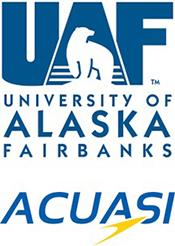
Alaska Center for Unmanned Aircraft Systems Integration (ACUASI), AK
DESCRIPTION: The University of Alaska Board of Regents established the Alaska Center for Unmanned Aircraft Systems Integration (ACUASI) in 2012 to lead all unmanned aircraft programs for the entire University of Alaska system. ACUASI oversees flight test range facilities in sixteen states and territories. ACUASI supports research and test activities related to public operations, civil/commercial operations, mixed manned and unmanned operations, high altitude long endurance (HALE), and high-altitude balloon operations.
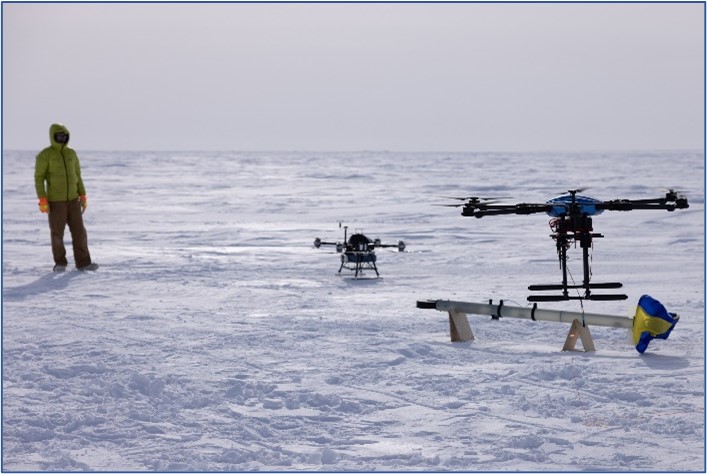
UAS TEST SITE HIGHLIGHTS:
-
ACUASI conducts research, development, test, and evaluation (RDT&E) flights outside of fixed ranges and under a variety of environmental conditions.
-
ACUASI has extensive experience operating in the Arctic, including under extreme climatic conditions.
-
ACUASI maintains their own fleet of Griffon Aerospace SeaHunter UAVs (280 pounds maximum takeoff weight or MTOW), COBALT CR (130 pounds MTOW), and smaller systems for payload and concepts of operation testing.
-
ACUASI partners include a host of Federal, State, community, tribal, military, commercial, international, and academic organizations and institutions.
POINT OF CONTACT:
Dr. Catherine F. Cahill
Director, Alaska Center for Unmanned Aircraft Systems Integration (ACUASI), CEO, Pan-Pacific UAS Test Range Complex
cfcahill@alaska.edu
(907) 455-2016
2158 Koyukuk Drive
PO Box 757320
Fairbanks, AK 99775
Website: https://acuasi.alaska.edu/
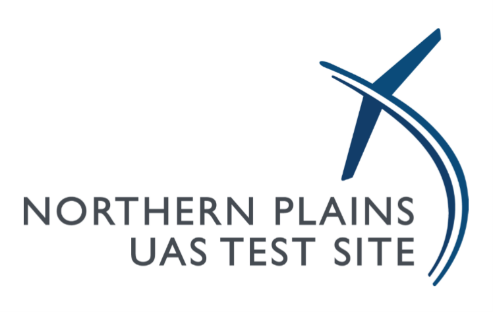
Northern Plains UAS Test Site (NPUASTS), ND
DESCRIPTION: At the Northern Plains UAS Test Site (NPUASTS), we are committed to enhancing our nation’s security through strategic partnerships with the Department of Defense (DoD) and our military. Our collaborative efforts focus on Counter-UAS operations, airspace regulation, and addressing various UAS requirements. Located in Grand Forks, ND, NPUASTS operates under a Nationwide Certificate of Authorization (COA), enabling us to design and implement customized test ranges tailored to our clients’ needs across the United States.
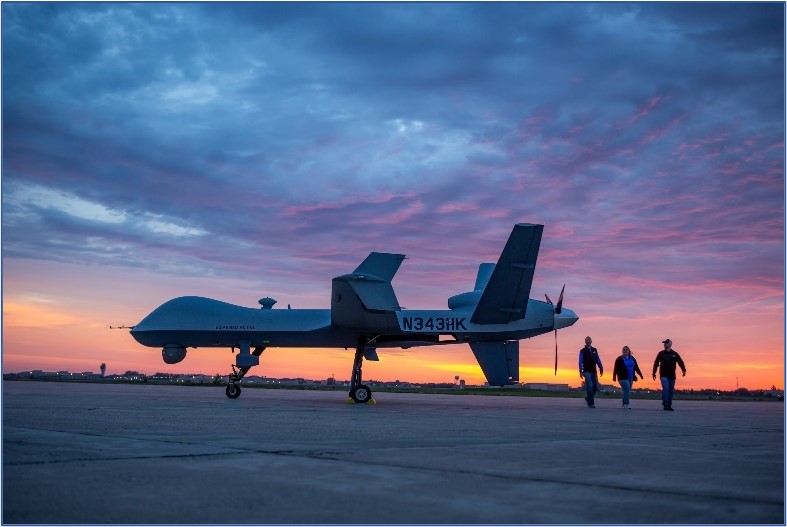
UAS TEST SITE HIGHLIGHTS:
-
The Northern Plains UAS Test Site (NPUASTS) administers Vantis, North Dakota’s beyond visual line of sight (BVLOS) system. With over 3,000 miles of BVLOS airspace, Vantis is backed by a cutting-edge Mission Network & Operations Center for detect-and-avoid surveillance. Recognized by the FAA through a Letter of Approval obtained via the Near-Term Approvals Process, Vantis serves as a Supplemental Data Service Provider, enabling safe, efficient, and scalable UAS operations. To learn more: www.VantisUAS.com
-
The NPUASTS is also a key partner in Project ULTRA (UAS, Transportation, Response, and Autonomy). Project ULTRA is a strategic initiative by the Department of Defense (DoD) focused on integrating advanced UAS technologies in military and civilian airspace. Our mission is to enhance operational capabilities, ensure secure airspace integration, and develop innovative UAS applications for various defense operations.
-
The NPUASTS and the North Dakota Department of Transportation lead North Dakota's Beyond Phase 2 Program. Collaborating with FAA and our industry partners, we aim to develop a performance-based regulatory framework for more complex, scalable UAS operations in the National Airspace.
-
While the NPUASTS does not maintain a physical test range, we excel by partnering with local and national test ranges to meet our clients’ unique needs. These collaborations, combined with the support from the State of North Dakota, solidifies NPUASTS’s position as a leader in the UAS industry.
POINT OF CONTACT:
Trevor Woods
Executive Director
info@npuasts.com
(701) 777-6100
4201 James Ray Drive
Grand Forks, ND 58202
Website: https://www.npuasts.com/
Vantis: https://www.vantisuas.com/
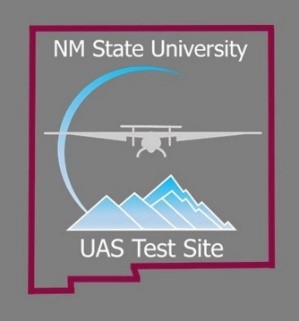
New Mexico State University UAS Test Site (NMSU UASTS), NM
DESCRIPTION: The New Mexico State University UAS Flight Test Site (NMSU UASTS), located in Las Cruces, New Mexico, specializes in unmanned systems flight-testing and provides the capability to test and evaluate all classes of UAS and systems including longer duration and/or high-altitude flights (HAPS). The NMSU UASTS operates under a Certificate of Authorization (COA) that permits UAS flights in over 15,000 square miles of coordinated airspace in southwestern New Mexico. The airspace, which extends from the surface to 17,999 feet mean sea level (MSL), features a very low volume of aviation traffic and overlays mostly undeveloped government-owned land.
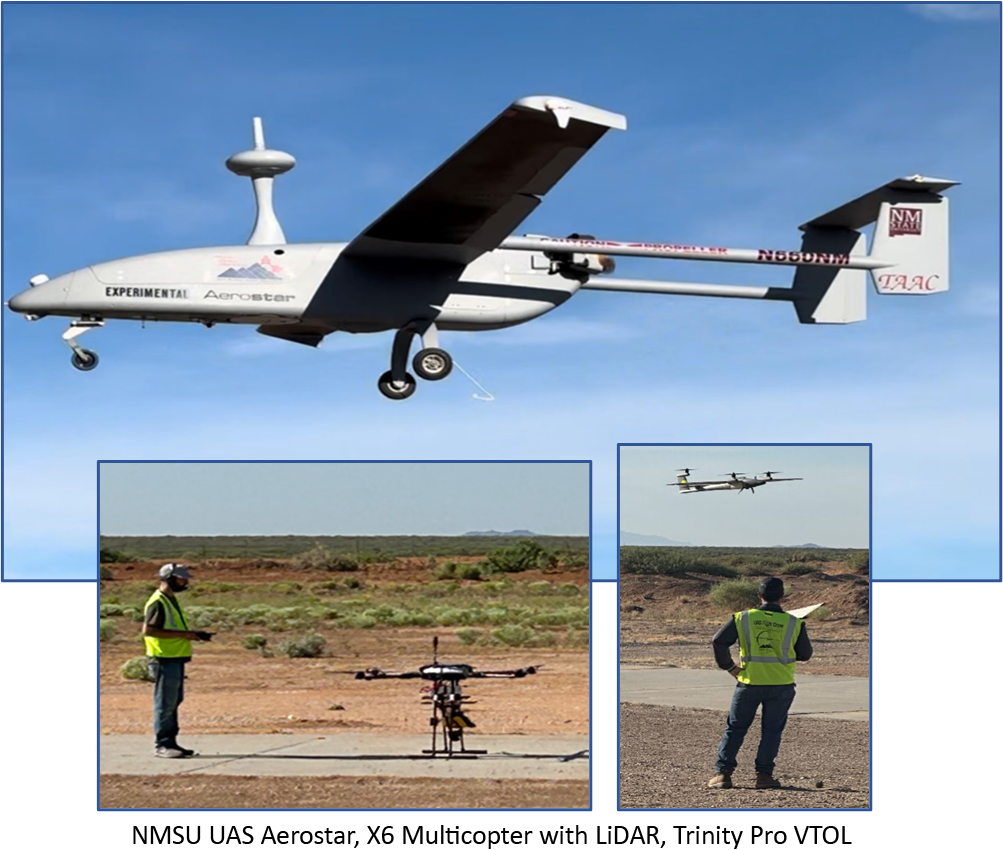
UAS TEST SITE HIGHLIGHTS:
-
NMSU UASTS provides research to inform FAA Policy and Rulemaking, and development, testing and evaluation support for federal government agencies and industry partners that enables innovation, and safe integration of UAS into the NAS.
-
As part of the FAA COE, the Test Site has supported work in Detect and Avoid (DAA), Beyond Visual Line of Sight (BVLOS), Human Factors, UAS and UAS Systems Cyber Security, Disaster Preparedness and Response, UAS Conspicuity, and Detect, Track, and Identify Systems validation.
-
The NMSU UAS Test Site operates its own UAS fleet, ranging from commercial off the shelf, NMSU constructed, fixed wing, VTOL and multi-rotor, battery to liquid fueled, complex medium-altitude Group 3 systems, and stratospheric ballooning systems.
-
For crewed aircraft the Test Site operates a Flight Design CTLS and a SCII Spider that can be utilized as chase aircraft or airborne system carriers.
-
The team includes a trained staff of manned and unmanned aircraft pilots, Aerospace, Electrical, and Mechanical Engineers, and technicians available to supplement customer teams.
-
Technical support is available on the campus of NMSU and ranges from Electronic Prototyping, Mechanical Prototyping, RF & Antenna Development and Testing Capabilities.
-
Facilities include a 15,000 square foot hangar at the Las Cruces International Airport dedicated to UAS operations, as well as offices and classrooms.
-
Cooperative relationship with Spaceport America, NM for longer duration flights and/or high-altitude flights (HAPS).
-
NMSU UASTS provides STEM outreach to students and teachers; and FEMA UAS First Responder training to public safety agencies across New Mexico.
POINT OF CONTACT:
Mr. Henry M. Cathey, Jr.
Aerospace Division Director and UAS Flight Test Site Director
hcathey@psl.nmsu.edu
(575) 646-9474
1050 Stewart St.
Las Cruces, NM 88003
Website: https://psl.nmsu.edu/divisions/unmanned-aerial-systems.html
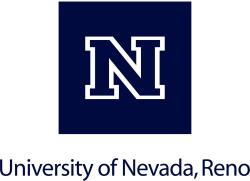
State of Nevada, NV
DESCRIPTION: The State of Nevada's UAS Test Site designation is managed and operated by the University of Nevada, Reno through its Nevada Autonomous test site program. Nevada Autonomous provides operational support for UAS Test Site activities including airworthiness, personnel certification, operations management, location assessment, Certificate of Authorization development, and safety management. Nevada Autonomous further assists with development of collaborations between industry and research institutions.
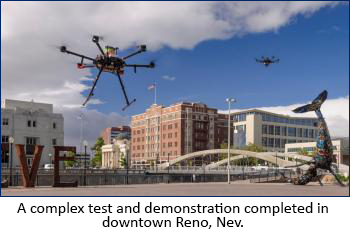
UAS TEST SITE HIGHLIGHTS:
- Nevada Autonomous advances FAA policy and procedures for the Nevada and national UAS industry in technology advancements for Beyond Visual Line of Sight (BVLOS) technologies in urban/non-urban environments, Remote Identification, drone detection, collision avoidance and the Unmanned Traffic Management (UTM) system.
- Nevada Autonomous collaborates with business and industry, government agencies and research institutions, notably the University of Nevada, Reno, University of Nevada, Las Vegas and Desert Research Institute, all part of the Nevada System of Higher Education and all conducting aspects of aeronautical, autonomous vehicle and robotics research.
- University of Nevada, Reno researchers affiliated with Nevada Autonomous established testing safety procedures that have been validated through field trials since 2015.
- Nevada Autonomous is organized through the University’s Nevada Center for Applied Research, an innovative service that is stimulating economic development and entrepreneurialism by opening access for business and industry to the institution’s leading-edge labs, equipment, expertise and services.
POINT OF CONTACT:
Carlos Cardillo
Executive Director, Corporate Partnerships
ncar@unr.edu
(775) 784-4837
University of Nevada, Reno
Nevada Center for Applied Research / Nevada Autonomous
1664 N. Virginia Street / Mail Stop 0525
Reno, NV 89557
Website: https://www.unr.edu/ncar/programs/nevada-autonomous
New York UAS Test Site (NYUASTS), NY
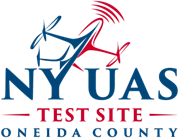 DESCRIPTION: The New York UAS Test Site (NYUASTS) enables a wide variety of development, test, and evaluation activities related to UAS, with the goal of safely integrating UAS into the national airspace system. NYUASTS is owned by Oneida County, NY and is operated in partnership with AX Enterprize, LLC. Based at Griffiss International Airport (KRME) in Rome, NY, NYUASTS hosts a state-of-the-art UAS operations center, an indoor flight test facility, and a mobile operations center. NYUASTS provides flight testing opportunities for large and small UAS, with FAA-authorized UAS operation areas throughout New York State and other parts of the northeastern US.
DESCRIPTION: The New York UAS Test Site (NYUASTS) enables a wide variety of development, test, and evaluation activities related to UAS, with the goal of safely integrating UAS into the national airspace system. NYUASTS is owned by Oneida County, NY and is operated in partnership with AX Enterprize, LLC. Based at Griffiss International Airport (KRME) in Rome, NY, NYUASTS hosts a state-of-the-art UAS operations center, an indoor flight test facility, and a mobile operations center. NYUASTS provides flight testing opportunities for large and small UAS, with FAA-authorized UAS operation areas throughout New York State and other parts of the northeastern US.
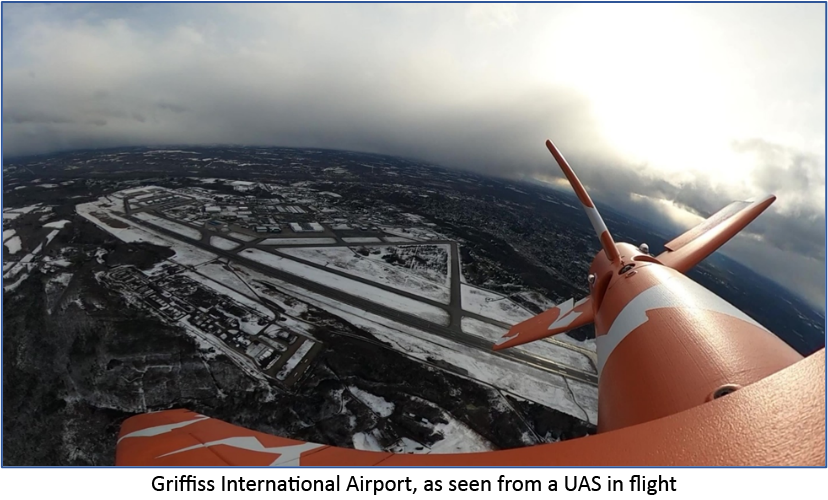
UAS TEST SITE HIGHLIGHTS:
-
NYUASTS is an instrumented and configurable UAS testbed. The operations center and mobile operations center receive real-time data feeds from a suite of ground-based air traffic surveillance sensors, including several radars. Robust network infrastructure is installed throughout the NYUASTS testbed and UAS operating areas to support complex UAS test events.
-
The NYUASTS team is committed to supporting the development of UAS Traffic Management (UTM) and Advanced Air Mobility (AAM) capabilities. NYUASTS hosted NASA UTM Technical Capability Levels (TCLs), the second phase of the FAA UTM Pilot Program (UPP2), and the FAA’s UTM Field Test (UFT), and continues to routinely support DOD UTM test events.
-
The NYUASTS team is actively involved in relevant industry standards bodies, including the ASTM F38.02 UAS Operations workgroup that developed F3411-22a “Standard Specification for Remote ID & Tracking,” and the ICAO Trust Framework Panel.
-
NYUASTS hosts SkyDome, an indoor UAS flight environment designed to support year-round testing of advanced UAS technologies. SkyDome is equipped to support radio frequency (RF) testing for UAS applications, including command and control, Remote ID, mobile networking, autonomous swarms, and detect-and-avoid technologies.
-
Griffiss International Airport is a Part 139-certified airport with Class D airspace, an 11,820 ft by 200 ft runway, and numerous wide-body hangars. From NYUASTS, UAS can reach an unparalleled variety of test environments, including urban, suburban, and rural areas, mountainous terrain, and over water.
-
NYUASTS collaborates with the Innovare Advancement Center, Navmar Applied Sciences Corporation, and the Air Force Research Laboratory Information Directorate (AFRL/RI) to bring together an experienced team of aviators, safety professionals, and engineers.
POINT OF CONTACT:
Mr. Edward A. Arcuri
Director, NYUASTS
Airport Commissioner, Griffiss International Airport
info@nyuastestsite.com
(315) 736-4171
660 Hangar Rd, Suite 223
Rome, NY 13441
Oneida County, New York
Website: https://nyuastestsite.com
Texas A&M University Corpus Christi Autonomy Research Institute (ARI), TX 
DESCRIPTION: On June 7, 2024, John Sharp, Chancellor – The Texas A&M University System, approved Lone Star Unmanned Aircraft System (UAS) Center of Excellence and Innovation (LSUASC) moving from a Center of Excellence into a Research Institute, with a focus on autonomous systems. This change represents the test site’s significant growth over the last decade, and our increased partnerships in autonomy research. As one of seven Federal Aviation Administration UAS Test Sites, Autonomy Research Institute’s (ARI’s) expanded role fully supports the Islander Impact 2030 Strategic Plan pillar of building an ecosystem of innovation. ARI will be dedicated to pioneering the development of safe, reliable, and innovative autonomous systems across air, ground, water, and space. ARI is conducting cutting edge research to advance the science and application of autonomy with the goal to become a global leader in shaping a future where intelligent machines seamlessly integrate into society.
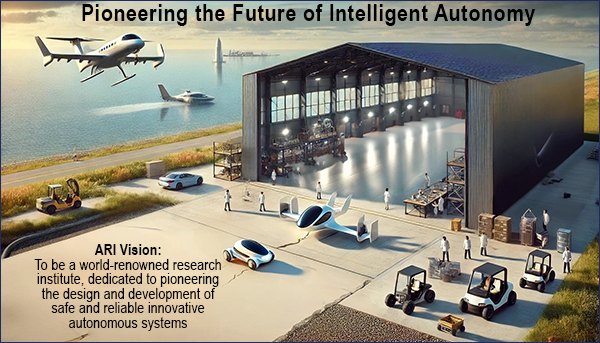
Autonomy Research Institute (ARI) HIGHLIGHTS:
-
ARI began conducting Urban Air Mobility evaluations in 2020, Advanced Air Mobility (AAM) Research in 2021, and co-chaired the State of Texas AAM Advisory Committee in 2024, supporting the Texas Department of Transportation (TXDOT).
-
ARI has conducted over 5,500 UAS research flights since our June 2014 FAA Certification as a UAS Test Site.
-
ARI is also working with energy sector partners supporting the application of AI and Machine Learning into a variety of Use Cases that include proactive wildfire detection and mitigation.
-
ARI continues to expand its research and development into autonomous systems operations including collision avoidance and use of on-board sensor systems.
-
ARI sustains research and education in the Public Safety domain in partnership with local Emergency Managers and the Texas Division of Emergency Management.
-
Recent research success includes: Supporting six FAA Next Generation Office AAM demonstrations and evaluations; Implementation of a Federated Provider of Services for UAS (PSU) capability as the foundation for State of Texas and Federal AAM research; Coastal Research including use of UAS to identify turtles during their migration period to aid in mitigating cold stun casualties; and the expansion of the legacy UAS Test Site airspace authorizations to now include 6 AAM Corridors that will be ready for use by Spring of 2025.
POINT OF CONTACT:
Michael J. Sanders
Executive Director, Texas A&M University Corpus Christi Autonomy Research Institute
Michael.Sanders@tamucc.edu
(361) 825-2896
Texas A&M University Corpus Christi Autonomy Research Institute
6300 Ocean Drive, Unit 5844
Corpus Christi, TX 78412-5844
Website: Autonomy Research Institute | Texas A&M University-Corpus Christi
Mid-Atlantic Aviation Partnership (MAAP), VA 
DESCRIPTION: The Virginia Tech Mid-Atlantic Aviation Partnership (MAAP) manages the Virginia Tech UAS Test Site. MAAP's expertise in UAS research, operations, risk management, and testing – joined with the talents of world-class faculty and students at a university respected globally for its research – allows them to tackle the most daunting challenges facing UAS integration. With a focus on evidence-based solutions to critical technical hurdles, MAAP provides support with safety case development, research, test, and evaluation, and technology validation. Their facilities and resources enable testing in different environments, tailored to their partners' goals. MAAP leads Virginia Tech’s participation as a core member of the FAA’s ASSURE research portfolio, they serve as the Virginia Innovation Partnership Corporation's program lead for the FAA BEYOND program and other major federal UAS-integration efforts. Their work has consistently led to landmark permissions and operations that have advanced the industry.
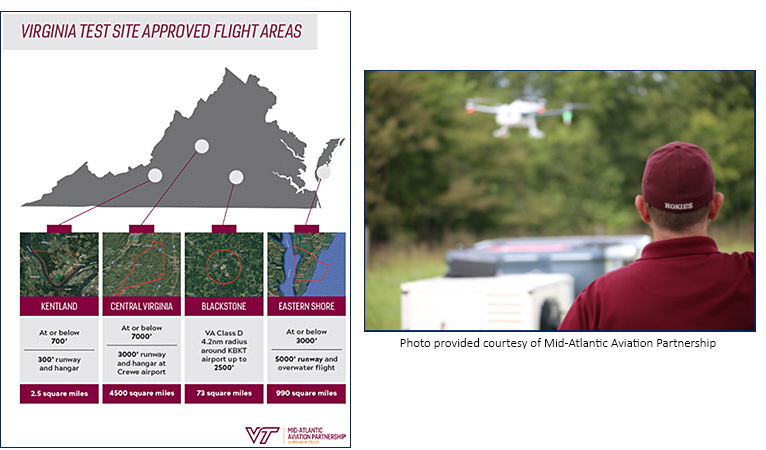
UAS TEST SITE HIGHLIGHTS:
-
MAAP's research, test, and evaluation activities have yielded substantive insights and data that the team actively shares with industry groups and standards bodies, including ASTM, RTCA, Association for Unmanned Vehicle Systems International (AUVSI), and the UAS Safety Team (UAST), helping to shape industry best practices and inform future policymaking.
-
MAAP's research has led directly to innovative approvals and operations for industry partners, including the first nationwide beyond visual line of sight/operations over people waiver, supporting the first Part 135 certification for a drone company, and the first commercial drone delivery service in the U.S.
-
Flight testing area specifics include high altitude flights, a 3,000-foot runway, on-site aircraft storage and an offshore overwater site – all of which allow for beyond visual line of sight flights.
-
MAAP has pioneered and validated a rigorous safety-case process that has quickly become a benchmark in the industry. Their method for systematically evaluating operational objectives against potential risks and mitigations has supported robust waiver applications and ultimately enabled new real-world use cases.
-
MAAP developed a Means of Compliance in partnership with the Virginia Tech Center for Injury Biomechanics to evaluate the potential injury severity from a small uncrewed aircraft according to the FAA Operations Over People rule. This FAA-accepted means of compliance allows for the evaluation of aircraft with and without parachutes when assessing potential failure modes.
-
MAAP has established its test site as the premiere team for UAS Traffic Management (UTM) and Detect and Avoid (DAA) work. This includes multiple years supporting NASA UTM Technical Capability Levels (TCLs), all three phases of FAA UTM research and extensive work evaluating both ground and airborne DAA technologies for FAA research and operational approvals.
-
MAAP team members provide flight training, developing and administering custom curriculums for their customers which include FAA employees, flight waiver holders, and Sinclair Broadcasting news reporters.
POINT OF CONTACT:
Tombo Jones
Director
tomboj@vt.edu
(540) 231-8890
1991 Kraft Drive
Blacksburg, VA 24061
Website: https://maap.ictas.vt.edu/
